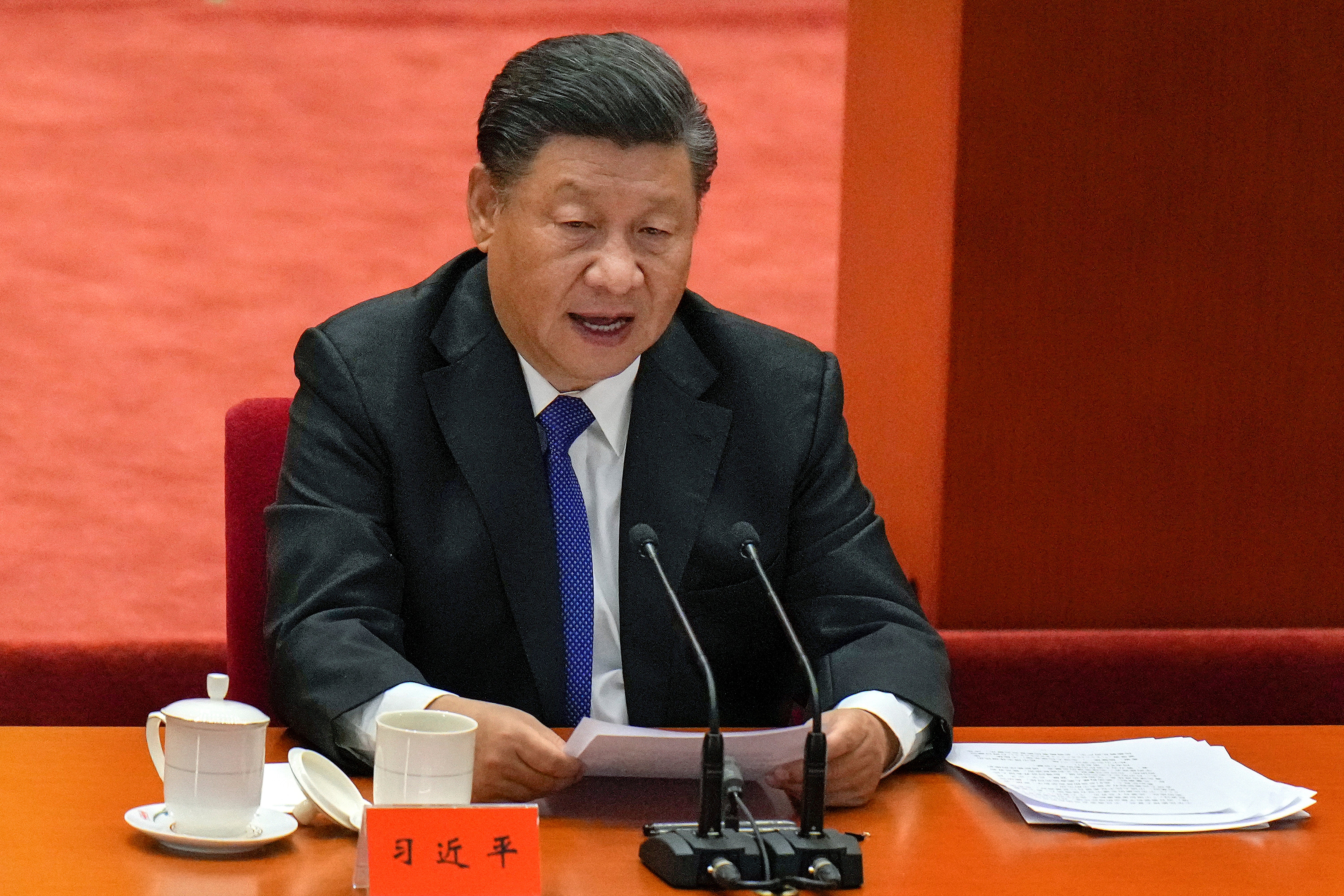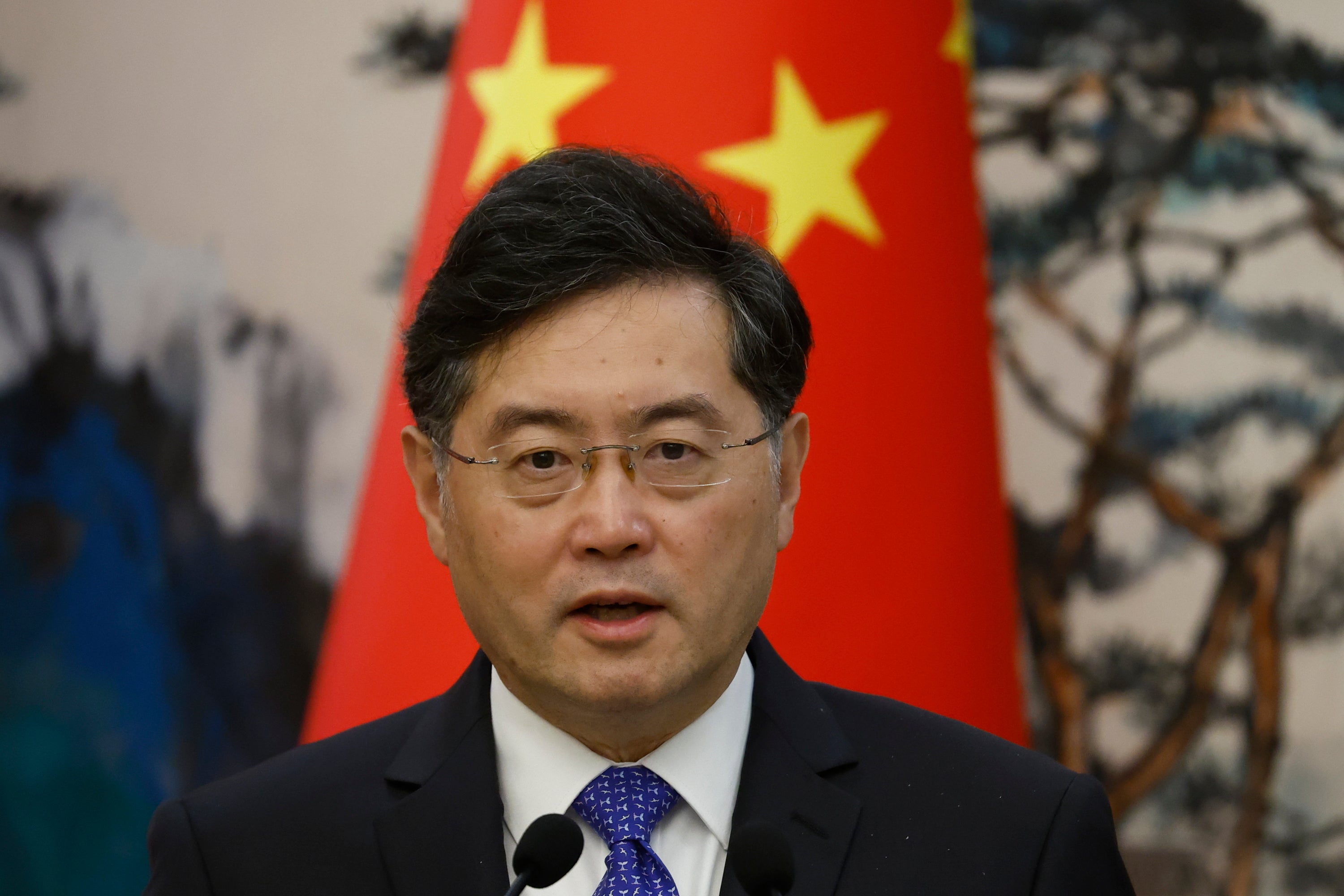What China’s mysterious sackings of top ministers mean for Xi Jinping’s grip on power
Following two months of unexplained absence, General Li Shangfu was fired as defence minister
China’s recent dismissal of its defence minister without any explanation, as it prepared to host foreign defence officials in Beijing, has mystified observers who believe the move could allow for high-level military talks resuming with the US.
Following two months of unexplained absence, General Li Shangfu was fired as defence minister on Tuesday. Mr Li was the second highest official to be fired after “wolf-warrior” Qin Gang was removed from the foreign minister’s post in July.
The firings of two top public figures, who were reportedly handpicked by Xi Jinping, have raised questions about the president’s absolute hold on the Communist Party as he marched through a precedent-breaking third term as the head of state.
Mr Xi has a reputation for valuing loyalty above all and has in the past relentlessly attacked corruption in public and private. It has been seen as a method of eliminating political rivals and shoring up his political position while the economy deteriorates and tensions rise with the US over trade, technology and Taiwan.
The abrupt changes in China’s top brass at a time when the country’s economic growth is sluggish have been a concern.
So far no replacement for Mr Li has been named even as the country prepared to host foreign defence officials at the Beijing Xiangshan Forum on 29-31 October.
The 65-year-old was last seen in public on 19 August and was reportedly under investigation for suspected corruption related to equipment procurement and development, according to Reuters.

Mr Li was promoted to the job only in March and will go down in history as the shortest-serving Chinese defence minister to date. He was sanctioned by the US in 2018 over Beijing’s purchase of combat aircraft and equipment from Russia – a move that prompted China to cut off contacts with the US military.
China also sacked finance minister Liu Kun, and appointed Lan Fo’an in his place, news agency PTI reported. Before Mr Lan was appointed to the post, he was the Communist Party chief of the finance ministry. The National People’s Congress, China’s rubber-stamp parliament, also removed minister of science and technology, Wang Zhigang, and appointed Yin Hejun in his place.
Observers believe Mr Li’s removal could allow for the resumption of high-level military talks with the US, which have been suspended as relations between the two nations soured. Mr Li had refused to meet his US counterpart, Lloyd Austin, at a Singapore defence summit earlier this year.
“This is damaging to Xi Jinping’s personal image, but it will not impact his hold on power,” Deng Yuwen, a US-based independent Chinese political commentator, told NPR.
According to him, the swift removal of the two men who were considered to be close with Mr Xi reflected poorly on the president’s “decision-making abilities”.
Their dismissal also showed that the power was concentrated under Mr Xi and “how the Chinese Communist Party has become even more opaque, because one top leader can appoint or dismiss a person based on his impression from just one conversation”, he told the broadcaster.
Having had his ideology, known as “Xi Jinping Thought”, enshrined in the party constitution and with the abolishment of presidential term limits, Mr Xi has structured the system so that he may stay in power for the rest of his life.
The 70-year-old also headed the party and state committees overseeing the People’s Liberation Army, the world’s largest standing military with more than two million personnel on active duty.

Along with dealing with what appeared to be internal political issues, the ruling party is struggling to revive an economy that has been severely impacted by the draconian “zero-Covid” measures and an ageing population.
High unemployment among college graduates and a movement of many of its wealthiest to more liberal societies abroad have added to the country’s economic woes.
Considered a protege of the Chinese president, Mr Qin had served less than a year before he disappeared from public view and was replaced by his predecessor, Wang Yi. Disappearances of politicians, celebrities, and rights activists, often forced, are common in China.
While no formal explanation was issued by the party, the Wall Street Journal cited sources alleging that Mr Qin the former minister had an extramarital affair while he was ambassador to the US.
“Secrecy is the default position of the Communist Party anyway, but it has been put on steroids under Xi,” Steve Tsang, director of the SOAS China Institute at the University of London, was quoted by the Atlantic as saying.
China also announced that Mr Li and Mr Qin have been stripped of their state councillor positions. The Standing Committee of the National People’s Congress approved the removal of both men, state broadcaster CCTV reported.
That virtually assures the end of their political careers, although it remains unclear whether they will face prosecution or other legal sanctions.
(Additional inputs from agencies)
Join our commenting forum
Join thought-provoking conversations, follow other Independent readers and see their replies
Comments
Bookmark popover
Removed from bookmarks